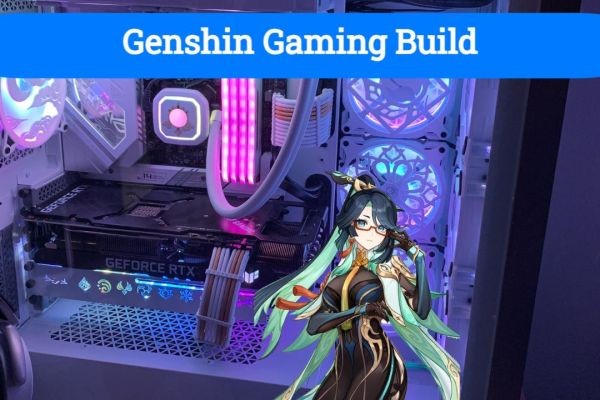Navigating modern activism involves leveraging social media and collective action to address societal issues; discover how you can be a catalyst for change.
08/13/24 • 308 Views
Activism today means standing up for what's right and using your voice to demand change. It spans from fighting for civil rights to calling out environmental injustices. With social media, you can amplify your cause globally, rapidly spreading awareness and mobilizing support. Movements like Black Lives Matter and climate activism are proof of their power. Activism channels societal frustrations into action, influencing laws and shaping public discourse. By joining protests, sharing information, or supporting grassroots campaigns, you become part of a larger, more impactful effort. Discover more about how you can drive change in today's interconnected world.
Key Takeaways
- Activism today involves leveraging digital platforms to amplify voices and mobilize movements globally.
- It encompasses various issues like civil rights, environmental justice, and economic inequality.
- Social media hashtags and viral campaigns turn local concerns into global conversations.
- Activists influence policy and public discourse, driving tangible social and political changes.
- Collaborative efforts between activists, organizations, and communities focus on sustainable and inclusive change.
Definition of Activism
What exactly is activism, and why does it matter so much today? Activism is the practice of taking direct action to support or oppose controversial issues, and it's more essential now than ever. At its core, activism is about advocating for social justice and driving change through collective action. Whether you're pushing for political reforms, fighting for environmental sustainability, or standing against economic inequality, the essence of activism lies in its diverse forms and methods.
Activist movements draw their strength from direct action. This means you're not just talking about change; you're actively working to make it happen. Protests, boycotts, civil disobedience—these are all powerful expressions of activism that have shaped history. The term itself has evolved since the early 20th century, rooted in collective behavior and social action aimed at addressing societal issues.
In today's world, the types of activism are as varied as the causes they support. From grassroots campaigns to global initiatives, each form of activism plays a crucial role. By engaging in these actions, you're part of a larger movement working towards a better, more just world.
Don't underestimate the power of your voice and actions—they matter immensely.
Types of Activism
Activism manifests in countless forms, each uniquely powerful in driving social change. Whether you're marching in the streets, organizing mutual aid, or creating protest art, every action counts. Social media has revolutionized activism, allowing voices from every corner of the globe to unite and amplify their messages. This digital activism has been pivotal in movements like the Arab Spring, where real-time updates spurred global awareness and support.
The Civil Rights Movement and environmental movements showcase the breadth of activism's reach. From fighting for racial equality to advocating for climate action, these causes require different strategies but share a common goal: justice. Economic activism tackles issues like income inequality and corporate accountability, pushing for fair wages and ethical business practices. Political activism, on the other hand, seeks to influence policy and legislation, often through lobbying, campaigning, and voter mobilization.
Each category of activism—whether social, environmental, economic, or political—plays an essential role in shaping our world. Your participation, whether online or in-person, contributes to a larger tapestry of change.
Historical Examples
Throughout history, powerful movements like the Civil Rights Movement and the Women's Suffrage Movement have frequently demonstrated that collective action can reshape societies and secure fundamental rights. The Civil Rights Movement in the US fought tirelessly against racial discrimination and segregation, leading to landmark changes like the Civil Rights Act of 1964. This movement didn't just challenge laws; it transformed societal norms, proving that activism can dismantle deeply entrenched systems of injustice.
Similarly, the Women's Suffrage Movement was a monumental effort that culminated in the passage of the 19th Amendment in 1920, granting women the right to vote. This was more than just a pivotal victory; it was a compelling step towards gender equality.
The Anti-Apartheid Movement in South Africa stands as another powerful illustration of the efficacy of activism. Through persistent struggle and global solidarity, this movement brought an end to apartheid, dismantling institutionalized racial segregation. The Arab Spring showed us that activism isn't confined to any one region. Mass protests across the Middle East and North Africa demanded political change and exposed the power of unified voices against tyranny.
Modern Movements
In today's interconnected world, modern movements harness the power of digital tools and social media to amplify their voices and drive impactful change. You see it every day—hashtags trending, online petitions circulating, and viral campaigns raising awareness on critical issues. Modern activism thrives on these online platforms, allowing causes to reach a global audience in mere seconds.
Intersectionality is at the heart of these movements, recognizing the overlapping and interconnected nature of social issues like race, gender, sexuality, and class. This lens guarantees that activism is inclusive and addresses the multifaceted nature of oppression and discrimination. Movements such as Black Lives Matter, LGBTQ+ rights, climate activism, and #MeToo have sparked worldwide conversations, thanks to their ability to resonate across diverse communities.
But it's not just about online presence. Collaborative efforts between activists, organizations, and communities are essential for driving effective and sustainable change. Modern activism relies on these partnerships to pool resources, share expertise, and amplify each other's messages. By combining the power of digital tools with collective action, today's movements are more equipped than ever to tackle the complex challenges of our time. You, too, can be part of this transformative wave of change.
Role of Social Media
You can't underestimate the power of social media in amplifying voices and mobilizing movements quickly. Platforms like Twitter and Instagram have turned hashtags such as #blacklivesmatter into global phenomena, driving social change at lightning speed.
Amplifying Voices Globally
Social media has revolutionized activism by giving activists a powerful platform to amplify their voices and rally global support. Platforms like Twitter, Instagram, and Facebook have become essential tools for online activism. They enable you to reach a wider audience, mobilize support, and create global solidarity. Hashtags and viral campaigns can turn local issues into global discussions, making it easier for activist voices to be heard.
| Social Media Platform | Impact on Activism |
|---|---|
| Real-time updates, hashtags | |
| Visual storytelling and outreach | |
| Community building and events | |
| TikTok | Engaging younger audiences |
| YouTube | Long-form content, education |
Through social media, you can share real-time updates, coordinate protests, and disseminate resources efficiently, ensuring effective advocacy. The digital age has made activism more accessible and immediate. You don't need to be in the same country to support a cause; global solidarity movements connect like-minded individuals across continents. This collective action is more impactful than ever, proving that online activism is a game-changer in today's world.
Mobilizing Movements Quickly
Thanks to the rapid spread of information through social media, mobilizing movements quickly has become a pivotal force in modern activism. Platforms like Twitter and Instagram play a vital role in disseminating information to a global audience, enabling activists to raise awareness and build momentum with unprecedented speed. Hashtags and viral posts transform online campaigns into rallying cries that unite individuals around a common cause in real time.
You've probably seen how swiftly activists can organize protests, petitions, and boycotts through social media. This digital reach creates a sense of urgency and solidarity, compelling people to take action. The immediacy of social media allows activists to respond to current events, coordinate actions, and spark conversations that draw attention to pressing issues.
Moreover, social media's ability to engage a diverse audience is unparalleled. By connecting with people from different backgrounds, activists can foster broad-based support and build coalitions that are essential for social change. The power of social media lies in its speed and reach, allowing movements to gain traction quickly and sustain momentum over time. In today's world, social media isn't just a tool—it's the lifeblood of activism, driving change at an astonishing pace.
Impact on Society
You can't underestimate the power of activism in shaping public policy, raising global awareness, and empowering marginalized communities. It challenges the status quo, demands accountability, and ignites change that benefits society as a whole. When you engage in activism, you're not just voicing your concerns; you're paving the way for a more equitable and just world.
Shaping Public Policy
Activism's power to shape public policy is undeniable, as it channels societal demands directly into the corridors of government, compelling lawmakers to act. When you think about the rights we've gained and the social and political progress we've made, much of it stems from relentless activism. Grassroots organizing and civil disobedience have been pivotal in pushing for tangible changes, whether it's fighting climate change or advocating for civil rights. These movements don't just raise awareness; they ignite action.
You see, activists are the ones knocking on doors, organizing rallies, and sitting in on legislative sessions, making sure that policymakers can't ignore the pressing issues of our time. Their efforts translate into real-world impacts, from new laws protecting the environment to policies that promote social justice. The pressure they exert forces a shift in public discourse and, ultimately, in legislation.
Think about it: the Civil Rights Act, environmental regulations, and even recent climate accords all owe a debt to tireless activism. Without these movements, many critical changes might never have occurred. Activism isn't just about making noise; it's about making history, one policy change at a time.
Raising Awareness Globally
In today's interconnected world, raising awareness globally has never been more crucial for driving societal change. With the advent of social media and digital platforms, you can now reach a wider audience and mobilize support for various causes more effectively than ever before. Activists harness the power of these tools to spark conversations and bring about significant societal changes.
Consider these three impactful ways activists use to raise awareness globally:
- Hashtag Movements: Campaigns like #BlackLivesMatter and #MeToo have demonstrated the power of a simple hashtag to unite people worldwide and initiate crucial discussions on racial justice and gender equality.
- Viral Content: Videos, memes, and infographics spread rapidly across digital platforms, making it easier to educate and engage a global audience on complex issues.
- Online Petitions: Platforms like Change.org enable you to gather massive support quickly, pressuring policymakers to take action.
Innovative tactics, such as leveraging influencers or organizing virtual events, further amplify these efforts. By shaping public opinion and influencing policies, raising awareness globally is a cornerstone of modern activism. Your participation in these movements can drive meaningful, positive change on a global scale.
Empowering Marginalized Communities
Building on the momentum of global awareness, empowering marginalized communities remains a powerful force for societal transformation. Activism amplifies the voices of those who've long been silenced, advocating for their rights and ensuring they gain the visibility and recognition they deserve. When marginalized communities are empowered, they can effectively challenge systemic injustices and push for social justice that benefits everyone.
Historically, activist movements led by these communities have driven significant social and political changes. Think of the Civil Rights Movement, LGBTQ+ rights, and indigenous struggles—each one reshaping society in profound ways. In today's world, activism continues to focus on the inequalities and systemic injustices faced by marginalized groups, from racial discrimination to economic disparities.
You can't underestimate the role of activism in fostering inclusivity and diversity. When we support these movements, we're not just helping marginalized communities; we're building a more just and equitable society for all. It's about recognizing that social justice isn't a zero-sum game—everyone benefits when we address and rectify systemic wrongs.
Learning Opportunities
Exploring the myriad of learning opportunities in activism empowers you to make meaningful changes in your community and beyond. By diving into various resources, you can gain the knowledge and skills needed to be an effective activist. Here's how you can get started:
- Classes: Enroll in courses that cover the history, social causes, and strategies of activism. These classes provide a thorough education, equipping you with a solid foundation.
- Books: Read books that offer insights into successful activist strategies, impactful movements, and historical examples. These sources provide in-depth learning and inspiration for your efforts.
- Local Events: Attend workshops, speeches, and fundraisers to engage with activism in real-life settings. Local events are excellent for hands-on experience and networking with like-minded individuals.
In addition to these structured learning opportunities, consider volunteering with nonprofits and grassroots groups. These volunteer opportunities offer practical experience and a chance to make a direct impact. Mutual aid organizations also serve as valuable avenues for learning about activism through direct involvement in community support efforts. By immersing yourself in these educational experiences, you accumulate the tools and knowledge necessary to drive change and inspire others in your community. Don't wait—start your journey towards impactful activism today.
Conclusion
In today's world, activism isn't just about protests; it's about making your voice heard in countless ways. Whether you're marching, tweeting, or signing petitions, you're part of a legacy of change. Social media amplifies our reach, making it easier to unite for justice. So, why wait to make a difference? Get involved, educate yourself, and inspire others. Together, we can create a more equitable society. Your activism matters more than ever.









